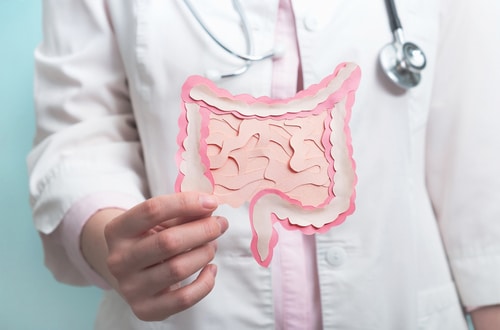
What is Colorectal Cancer?
Colorectal cancer begins in either the colon or the rectum. Cancer starts as growths called polyps in the inner lining of the colon or rectum. While not all polyps become cancer, over time, some can. The likelihood of polyps becoming cancer depends on the kind of polyp in the area.
Colorectal cancer spreads by growing into the wall of the colon or rectum, then into the bloodstream, where it reaches the lymph nodes.
The severity of the spread depends on how deep it grows into the colon wall and where it goes in the body.
Risk Factors For Colon Cancer
Several factors can increase the risk of developing colon cancer, which includes
- Being overweight
- Smoking
- Diet
- Age
- Inflammatory Bowel Disease
- Family history
It’s vital to try and minimize your risk by eliminating factors you can control. Lifestyle changes such as eating healthier, quitting smoking, and exercising can help you lower your risk of colorectal cancer.
Also, getting your colon examined as part of your healthcare routine can help detect problems before they grow. If polyps are found in your colon, they are removed and sent away for testing to see if they are cancerous.
What can I expect from a Colonoscopy?
Some people are hesitant to get a colonoscopy due to misconceptions and fear of an unfavorable diagnosis. But, getting a colonoscopy is a tool to help keep you in good health. It’s an outpatient procedure that takes between 30 minutes to an hour. It’s recommended to be sedated through anesthesia to avoid feeling discomfort. There are few risks of a colonoscopy, but there is potential for rectal bleeding or an adverse reaction to the sedative.
Can I prevent Colorectal Cancer?
Getting screened can help you address problems before they begin, but you also have the power to lower the chance of getting colon cancer. Eating fruits and vegetables, avoiding alcohol and tobacco, and staying active can help keep you on the path to good health.
Summit Healthcare Regional Medical Center can help answer questions related to colon health. Call our Show Low office today at (928) 537-4375.
